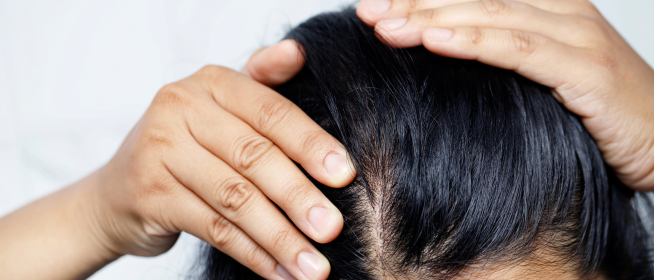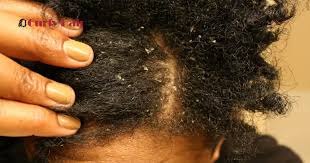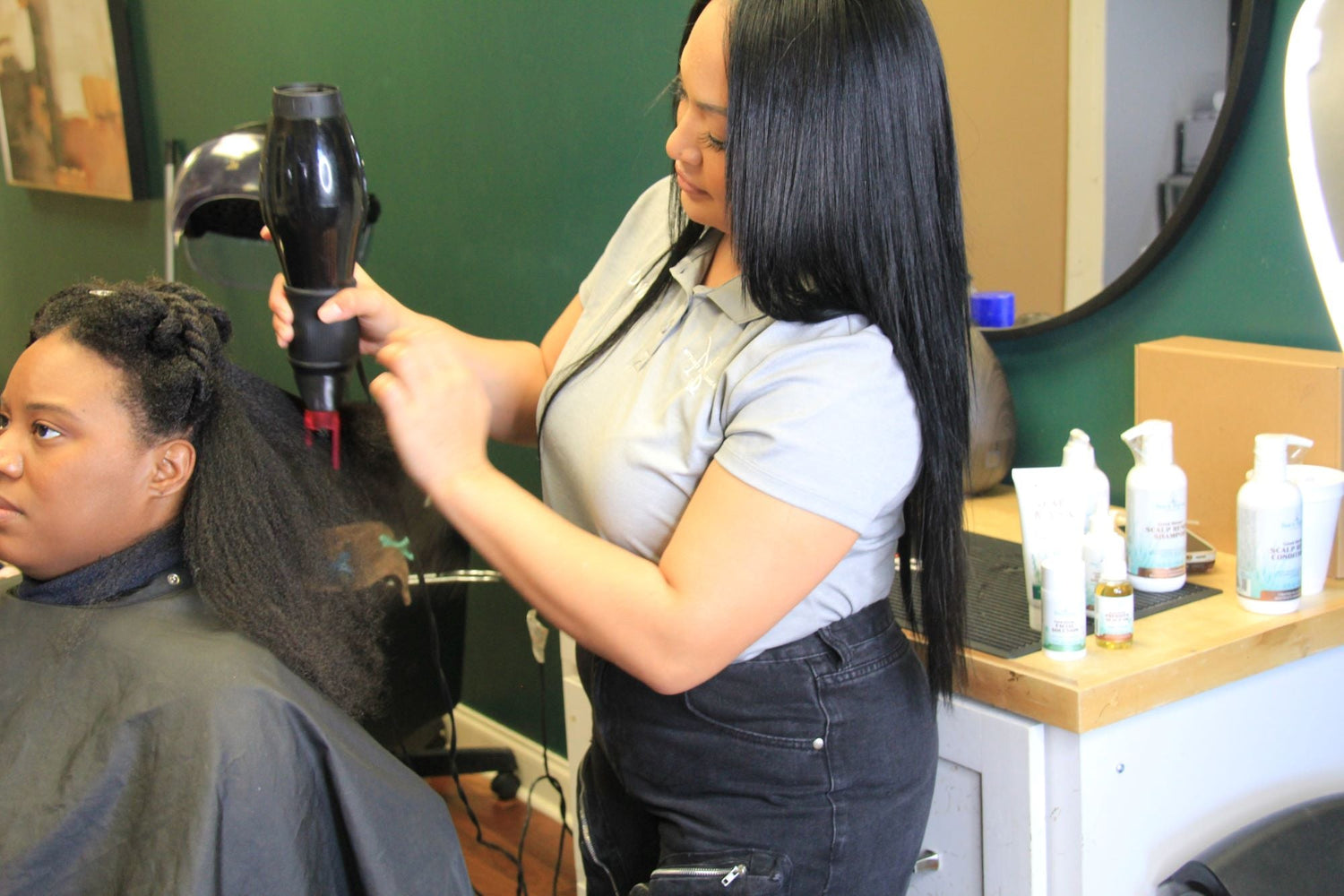Welcome to the Bea’s Bayou Skincare blog! Today, we're diving into an exciting topic that could transform your approach to managing eczema: the benefits of digestive enzymes for scalp and skin health. If you're struggling with eczema and seeking natural, effective solutions, this post is for you.
Understanding the Climate-Skin Connection
Why is it important?
As someone who has dealt with the frustrating and often painful symptoms of scalp eczema and seborrheic dermatitis, I know firsthand how much the climate can impact these conditions. Whether you're battling flare-ups during the hot, humid summer months or struggling with dry, irritated skin in the winter, the environment plays a crucial role in the health and comfort of your scalp.
In this in-depth blog post, I'll share my expert tips and insights on how different climates can affect scalp eczema and seborrheic dermatitis, and what you can do to soothe your symptoms and maintain a healthy, balanced scalp year-round. As the founder of Bea's Bayou Skincare , a line of probiotic-infused and herbal haircare products, I've dedicated my career to helping people like you find relief and regain confidence in their skin and hair.
The Impact of Cold, Dry Weather
One of the most common climate-related triggers for scalp eczema and seborrheic dermatitis is cold, dry weather. During the winter months, the air tends to be drier, which can strip your skin of its natural moisture and lead to a compromised skin barrier.
When the skin's protective barrier is disrupted, it becomes more vulnerable to irritation, inflammation, and the overgrowth of problematic microbes like yeast and bacteria. This can exacerbate the symptoms of scalp eczema and seborrheic dermatitis, causing the scalp to become:
- Itchy and irritated
- Flaky and scaly
- Prone to redness and inflammation
- Susceptible to hair loss or thinning
To combat the drying effects of cold, dry weather, it's essential to keep your scalp and skin well-hydrated. This means incorporating deeply moisturizing products into your haircare routine, such as our Scalp Solution and Hair Mask , which are formulated with nourishing ingredients like aloe vera, shea butter, and probiotics to soothe and replenish the skin.
Additionally, consider adding a humidifier to your living and work spaces to help counteract the drying effects of indoor heating. Staying hydrated from the inside out by drinking plenty of water can also make a significant difference in your skin's overall health and resilience.
To combat the drying effects of cold, dry weather, it's essential to keep your scalp and skin well-hydrated.
The Challenges of Heat and Humidity
On the other end of the spectrum, hot and humid climates can also pose unique challenges for those dealing with scalp eczema and seborrheic dermatitis. As someone who has lived in Southeast Louisiana my entire life, I know firsthand how the heat and humidity can exacerbate these conditions.
In warm, humid environments, the sebaceous glands on the scalp can become overactive, leading to an excess production of sebum (oil). This, combined with the warm, moist environment, can create the perfect breeding ground for the overgrowth of yeast and bacteria on the scalp.
The result? An intensely itchy, inflamed, and irritated scalp that can be incredibly difficult to manage. Many of my customers have described the sensation as a "tingling" or "crawling" feeling that makes their skin feel like it's on fire (like with eczema).
To combat the effects of heat and humidity, it's crucial to keep your scalp as dry as possible, especially after activities that cause sweating, such as:
- Exercising
- Spending time outdoors
- Commuting in a hot car
I recommend carrying our Clarify & Soothe Scalp Bundle with you and misting it onto your scalp as needed to help absorb excess moisture and soothe any irritation. You can also use a cool-setting hair dryer to gently dry your scalp after washing or sweating.
Additionally, be mindful of the products you're using on your hair and scalp. Avoid heavy, occlusive products that can trap heat and moisture, and instead opt for lightweight, breathable formulas that won't exacerbate the problem.
The Role of Seasonal Allergens
Another climate-related factor that can impact scalp eczema and seborrheic dermatitis is the presence of seasonal allergens, such as pollen. When your body reacts to these environmental triggers, it can lead to inflammation and dryness on the scalp, which can then worsen your existing skin conditions.
To help manage seasonal allergies and their impact on your scalp, consider incorporating anti-inflammatory and soothing ingredients into your haircare routine.
You can also support your body's natural defenses by taking digestive enzymes and probiotics, which can help to balance your gut microbiome and reduce overall inflammation. Some of my favorite probiotic-rich foods include:
- Fermented vegetables (like sauerkraut or kimchi)
- Kefir or yogurt
- Kombucha
- Miso
The Impact of Wind and Sun Exposure
In addition to temperature and humidity, other climate-related factors like wind and sun exposure can also take a toll on the health of your scalp.
"Too much UV radiation can damage the skin's protective barrier and exacerbate conditions like eczema and Seborrheic dermatitis."
In addition to temperature and humidity, other climate-related factors like wind and sun exposure can also take a toll on the health of your scalp.
Strong winds can dry out the skin, leading to that familiar feeling of tightness and irritation. And while some sun exposure can be beneficial for skin health, too much UV radiation can damage the skin's protective barrier and exacerbate conditions like eczema and seborrheic dermatitis.
To protect your scalp from the drying effects of wind and sun, be sure to:
- Wear a wide-brimmed hat or scarf when spending time outdoors
- Use a mineral-based, non-comedogenic sunscreen specifically formulated for the scalp and hair
- Seek shade or indoor respite during the hottest, sunniest parts of the day
And as always, keep your scalp well-hydrated with nourishing, probiotic-infused products like our Collection.

Maintaining a Healthy Scalp Microbiome
Underlying all of these climate-related factors is the importance of maintaining a healthy, balanced scalp microbiome. The microbiome is the community of microorganisms (like bacteria and yeast) that live on the surface of our skin, and it plays a crucial role in the overall health and function of our skin barrier.
When the microbiome is out of balance, it can lead to a variety of skin issues, including eczema, seborrheic dermatitis, and other inflammatory conditions. And as we've discussed, the climate can significantly impact the delicate balance of the microbiome, causing an overgrowth of problematic microbes that can exacerbate your symptoms.
To support a healthy scalp microbiome, I recommend incorporating probiotic-rich products into your haircare routine, like our Scalp Solution and Hair Mask . These formulas are infused with beneficial bacteria and prebiotic ingredients to nourish and balance the skin's natural microbiome.
You can also support your scalp health from the inside out by taking a high-quality probiotic supplement and incorporating probiotic-rich foods into your diet, such as:
- Yogurt
- Kefir
- Sauerkraut
- Kimchi
- Kombucha
By maintaining a healthy, balanced scalp microbiome, you can help to strengthen your skin's natural defenses and reduce the impact of climate-related triggers on your scalp eczema and seborrheic dermatitis.
Putting It All Together: Your Climate-Proof Scalp Care Routine
Now that we've explored the various ways that climate can affect scalp eczema and seborrheic dermatitis, let's dive into a comprehensive, climate-proof haircare routine to help you find relief and maintain a healthy, balanced scalp year-round.
Cold, Dry Weather
- Incorporate deeply moisturizing products like our Hair Mask and Scalp Solution to replenish lost moisture and soothe irritation.
- Use a humidifier in your living and work spaces to counteract the drying effects of indoor heating.
- Stay hydrated by drinking plenty of water and incorporating probiotic-rich, anti-inflammatory foods into your diet.
Hot, Humid Weather
- Carry our Scalp Solution with you and mist it onto your scalp after sweating to help absorb excess moisture.
- Use a cool-setting hair dryer to gently dry your scalp after washing or sweating.
- Avoid heavy, occlusive products that can trap heat and moisture, and opt for lightweight, breathable formulas instead.
Seasonal Allergies
- Incorporate anti-inflammatory and soothing ingredients like chamomile and lavender into your haircare routine, such as our Hair Mask .
- Support your body's natural defenses by taking digestive enzymes and probiotics, and incorporating probiotic-rich foods into your diet.
Wind and Sun Exposure
- Wear a wide-brimmed hat or scarf to protect your scalp from the drying effects of wind.
- Use a mineral-based, non-comedogenic sunscreen specifically formulated for the scalp and hair.
- Seek shade or indoor respite during the hottest, sunniest parts of the day.
By incorporating these climate-specific tips and strategies into your haircare routine, you can help to soothe your scalp, reduce the impact of environmental triggers, and maintain a healthy, balanced microbiome – no matter the season or location.
Your skin and scalp are unique.
Remember, your skin and scalp are unique, so it may take some trial and error to find the perfect combination of products and techniques that work best for you. But with patience, persistence, and the right tools, you can find lasting relief and regain confidence in your skin and hair.
If you have any other questions or would like personalized recommendations, feel free to reach out to our team at Bea's Bayou Skincare . We're here to support you on your journey to healthier, happier skin and hair.





